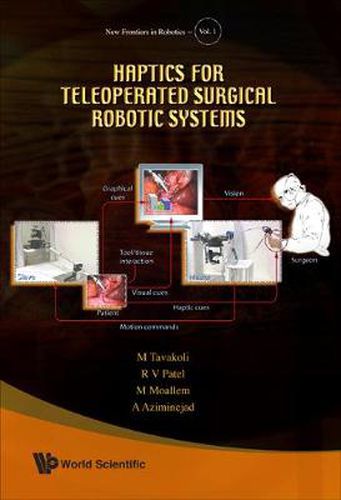Readings Newsletter
Become a Readings Member to make your shopping experience even easier.
Sign in or sign up for free!
You’re not far away from qualifying for FREE standard shipping within Australia
You’ve qualified for FREE standard shipping within Australia
The cart is loading…






An important obstacle in Minimally Invasive Surgery (MIS) is the significant degradation of haptic feedback (sensation of touch) to the surgeon about surgical instrument’s interaction with tissue. This monograph is concerned with devices and methods required for incorporating haptic feedback in master-slave robotic MIS systems. In terms of devices, novel mechanisms are designed including a surgical end-effector (slave) with full force sensing capabilities and a surgeon-robot interface (master) with full force feedback capabilities. Using the master-slave system, various haptic teleoperation control schemes are compared in terms of stability and performance, and passivity-based time delay compensation for haptic teleoperation over a long distance is investigated. The monograph also compares haptic feedback with visual feedback and with substitution for haptic feedback by other sensory cues in terms of surgical task performance.
$9.00 standard shipping within Australia
FREE standard shipping within Australia for orders over $100.00
Express & International shipping calculated at checkout
An important obstacle in Minimally Invasive Surgery (MIS) is the significant degradation of haptic feedback (sensation of touch) to the surgeon about surgical instrument’s interaction with tissue. This monograph is concerned with devices and methods required for incorporating haptic feedback in master-slave robotic MIS systems. In terms of devices, novel mechanisms are designed including a surgical end-effector (slave) with full force sensing capabilities and a surgeon-robot interface (master) with full force feedback capabilities. Using the master-slave system, various haptic teleoperation control schemes are compared in terms of stability and performance, and passivity-based time delay compensation for haptic teleoperation over a long distance is investigated. The monograph also compares haptic feedback with visual feedback and with substitution for haptic feedback by other sensory cues in terms of surgical task performance.